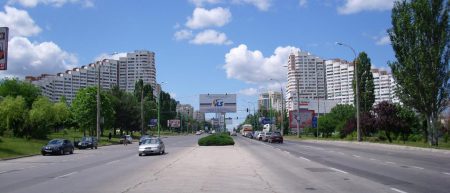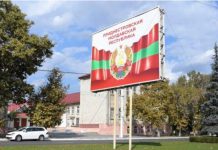BUCHAREST— Local elections in Moldova this weekend have strengthened the position of the incumbent government, despite allegations of corruption on a massive scale. Earlier this year, around $1 billion — about 12 percent of the country’s gross domestic product — disappeared from three Moldovan banks in non-performing loans reportedly made to people connected with the country’s political elite. Ironically, the person at the center of the scandal has now been elected mayor of Orhei. Last week’s resignation of the prime minister will also ignite fresh political battles in parliament over the creation of a new majority or governing coalition. The possibility of snap elections could see anti-European parties emerge with a strong majority.
Moldova was once a prime example of the success of the European Union’s Eastern Partnership. Back in 2010, the country enthusiastically embarked on a path to Europeanization, not without some success. Moldova now enjoys a visa-free regime and an Association Agreement with the EU. But it is now also the Eastern Partnership’s latest disappointment. The recent disappearance of the $1 billion exposed a state captured by a kleptocracy and weakened by high-level corruption. Moldova’s corrupt politics is the country’s greatest weakness and a bigger threat to the state than Russia. Moldova’s proximity to Russia remains, no doubt, a major vulnerability. Russia maintains its leverage over the country through the separatist region of Transnistria and more recently, through the autonomous region of Gagauzia. Nevertheless, the irresponsibility of Moldovan politicians has corroded the state more quickly and deeply than Russia itself could hope to do.
Over the past two decades, the Moldovan executive has found ways to control the judiciary and the agencies empowered to investigate public officials for corruption and other crimes. The election of pro-European parties five years ago did not change this. On the contrary, corruption reached new heights and the influence and power of oligarchs increased. Much like the Communists they succeeded, Moldova’s pro-European governments resisted tackling high-level corruption, reforming the judiciary and law-enforcement agencies, or embarking upon structural reforms needed to advance the Europeanization process.
As evidenced by Ukraine, another weak state in Eastern Europe is a major vulnerability. It is not in the interest of either the EU or NATO to see a variation of the Ukrainian scenario repeat itself in Moldova. As tiny as Moldova is, its border with a NATO and EU member country has given it a new strategic importance.
But what can the European Union do? Having signed an Association Agreement and a Deep and Comprehensive Free Trade Agreement (DCFTA) with Moldova, the EU now needs to focus on less technical and more political aspects. First, the EU needs to target corruption in the country, which is weaved into the institutional design of national decision-making. The National Anticorruption Center (NAC) needs to become a serious institution, independent of politicians and oligarchs. Civil society needs to be involved in anti-corruption efforts, and, as recent protests have indicated, there is a strong desire and potential for greater activity. The independent media needs to be encouraged and supported to expose corruption.
Second, it would greatly help to include Moldova in a program of Cooperation and Verification Mechanism (CVM), as is the case with Romania and Bulgaria. In these two countries, a CVM has helped protect the independence of the judiciary, increased the efficiency of court trials, and, in Romania, made sentencing public officials and economic tycoons on corruption charges a reality.
Third, as elsewhere in the region, the EU has to better present itself and its intentions. With a Russian-speaking population, and a media landscape dominated by Russian outlets and broadcasts, Moldova is one of the countries in the region most vulnerable to Russian propaganda and out of reach of European information and ideas. For many in Moldova, the Russian civilizational model is the only one they are accustomed to; relatively few appreciate and take advantage of visa-free travel to Europe. The EU needs to address its failure in communicating with populations in the Eastern neighborhood, and more effectively promote its intentions and values.
Nevertheless, aside from EU efforts, Moldova itself has to develop the political will to initiate and finalize reforms, despite the political costs involved. To support this, the EU should take a two-sided approach, using its conditionality with Moldovan officials, pledging support and funds in return for reforms, and expanding its programs to reach a larger segment of society.
Moldova could yet become the best case study for a more political and reform-driven EU approach to the region, as part of the current process of evaluating and revamping the Union’s neighborhood policy. The Association Agreement gives the EU strong leverage in Moldova’s reform process, and the benefits it will bring offer real incentives for reform-minded pro-European parties and leaders. This is the only course that will finally liberate the Moldovan state from its political captivity and open up the possibility for EU accession, which, for Moldova, remains the ultimate goal on its Europeanization path.
Sergiu Panainte is a program officer with the Black Sea Trust of The German Marshall Fund of the United States (GMF) in Bucharest. Alina Inayeh is the director of GMF’s Bucharest Office.
The views expressed in GMF publications and commentary are the views of the author alone.







